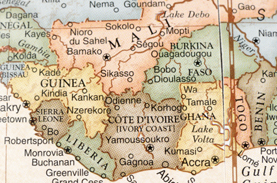Introduction
LARG is a group of experts who share an interest in LADO (Language Analysis for the Determination of Origin) as a research topic, from a practitioner's point of view, or both.

What is LARG's mission?
The primary mission of LARG is to stimulate research, contribute to the further development of guidelines, and promote best-practice for practitioners working in the field
of LADO,
through exchange of informed views, in the spirit of and extending the scope of the 2004
Guidelines. LARG follows up the work of the Language and National Origin Group (LNOG),
who jointly authored the influential 2004 Guidelines for the Use of Language
Analysis in relation to Questions of National Origin in Refugee Cases, and have organized discussions
since then in a range of academic and professional meetings.
LARG seeks collaboration among academics, practitioners, lawyers, qualified
linguists, government representatives, NGOs, and anyone else with an interest in
responsible, valid and scholarly practices in LADO. Experts connected to LARG
collaborate in the interest of contributing to the quality of work in this area.
What is LADO?
Language Analysis for Determination of Origin (LADO) is a new branch of applied linguistics, used by governments in processing asylum seekers who are applying for refugee
status. Applicants are interviewed by government agencies seeking to ascertain whether they speak the language of a group they say they belong to, as part of testing their claim
to come from a certain nation, region or group.
The LADO Process
Speech recordings are typically analysed to determine whether an applicant's speech patterns show expected features of the specific language variety spoken by their claimed
group.
The key question that can be addressed scientifically is not one of nationality but of language socialization and speech community membership, which is a sociolinguistic
matter.